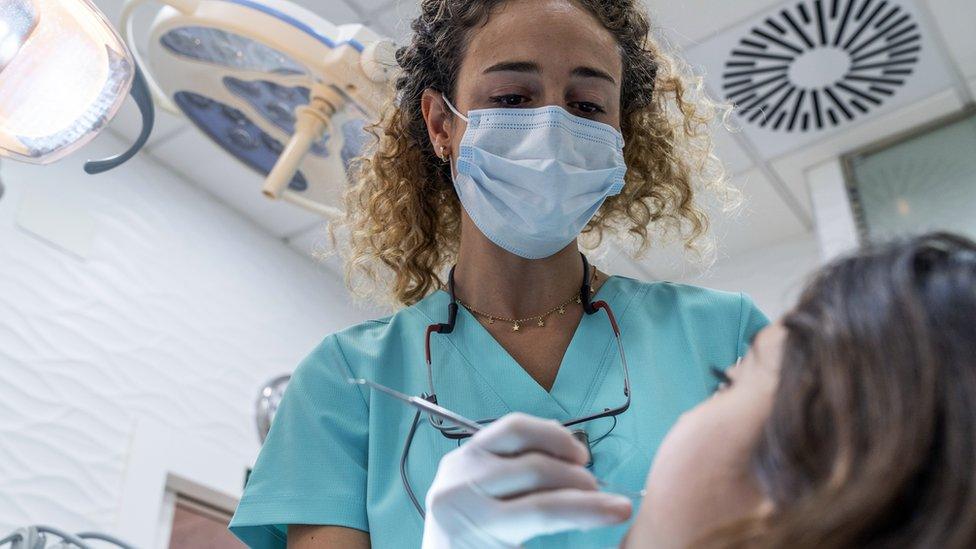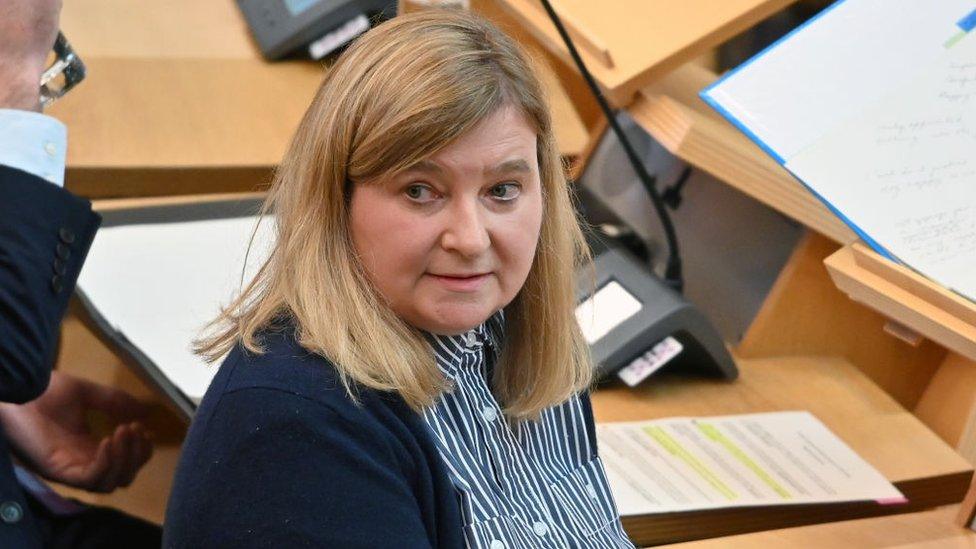Patients likely to pay more for NHS dental treatment
- Published

Some patients who pay a charge for NHS dental treatment are likely to see an increase in costs as part of changes announced by the Scottish government.
The move is part of a new payment system which ministers hope will see more dentists provide NHS care.
The government says the number of treatment codes will also be simplified, reducing workload.
However, dentists say the new system still falls short of the reform required to make it fit for purpose.
The announcement comes two years after the SNP pledged to abolish NHS dentistry charges in its manifesto for the 2021 Holyrood election.
Public Health Minister Jenni Minto said: "While patients that are required to pay an NHS charge are likely to see an increase in costs, this will be dependent on overall treatment plan.
"Around 40% of patients will continue to receive free NHS care and treatment, as they did under the previous arrangements.
"We are confident that the modernised system, with increased clinical freedom for dentists, will provide longer-term sustainability to the sector and encourage dentists to continue to provide NHS care.".

Public Health Minister Jenni Minto says the new system will give dentists more clinical freedom
The British Dental Association insists the reforms, to be rolled out from 1 November, will do little to tackle oral health inequality across Scotland.
And they have warned government ministers not to view the new package as a "final destination".
David McColl, chairman of the British Dental Association's Scottish dental practice committee said: "We've secured some improvements, but the fundamentals of a broken system remain unchanged. "The Scottish government have stuck with a drill and fill model designed in the 20th Century. They were unwilling to even start a conversation on making this service fit for the 21st.
"Ministers cannot pretend this is a final destination for NHS dentistry in Scotland. We struggle to see how these changes alone will close the oral health gap, end the access crisis or halt the exodus from the NHS."
The new system will cut the number of payment codes used by dentists from about 400 to 45.
The Scottish government says the changes will make the system less of a burden for practices, while it also "reaffirms our commitment to the sector and to all NHS patients in Scotland".
Financial loss
However, the BDA says surging costs have already left practices delivering some NHS care at a financial loss.
These include items such as dentures that require laboratory work, which have seen significant increases in fee levels.
Dentists also question whether the reforms will be enough to prevent millions of people losing access to treatment within the NHS.
The Scottish Parliament Covid recovery committee recently concluded its inquiry into the recovery of NHS dentistry.
It recommended that the Scottish government provides costings for - and consults on - different service model options.
Scottish Labour's health spokesperson Jackie Baillie said the payment reform plans "fall far short of the mark and risk forcing more and more dentists into the arms of private practice".
She added: "The very existence of NHS dentistry is in doubt on the SNP's watch.
"The government must listen to dentists and implement proper pay reform before access to dentistry becomes even worse."
Last year, a BBC investigation revealed four out of every five NHS dentists in Scotland are not accepting new adult patients for treatment on the health service.
Our researchers could not find any dentists taking on adult NHS patients in nine local authorities.
Meanwhile, nearly 80% of NHS practices were not accepting new child patients.
The Scottish government said that more than 95% of the population were registered with an NHS dentist.
It added that the dental workforce in Scotland (54 dentists per 100,000 population) was stronger than in England (42 per 100,000 population).